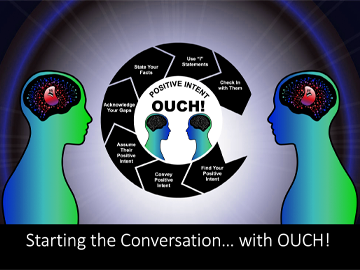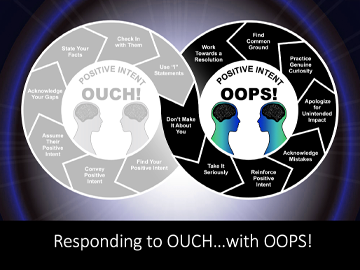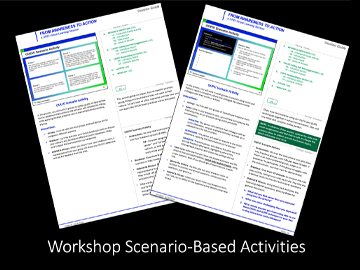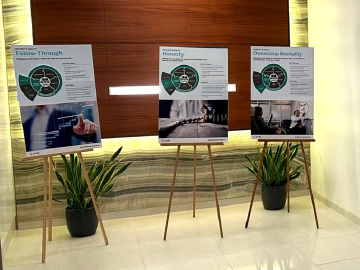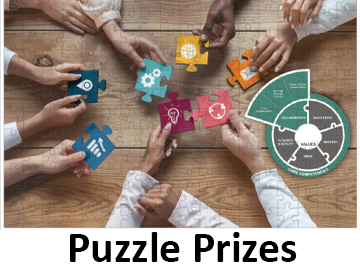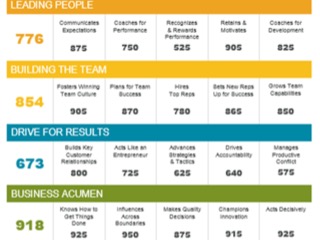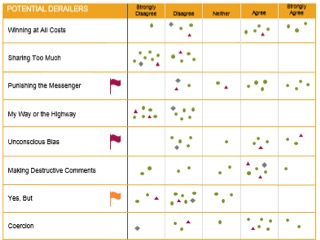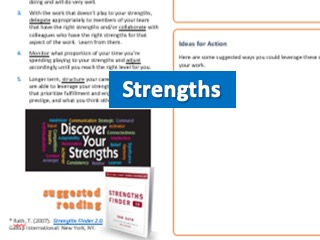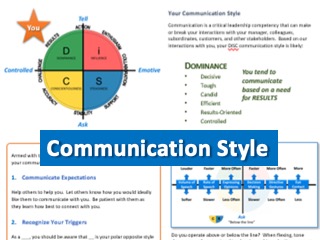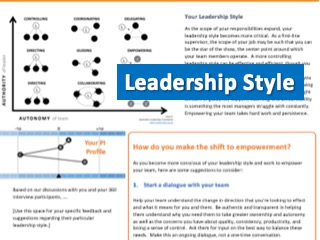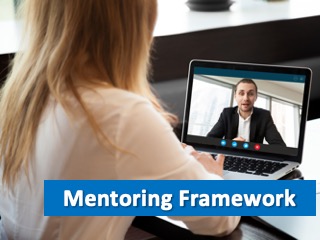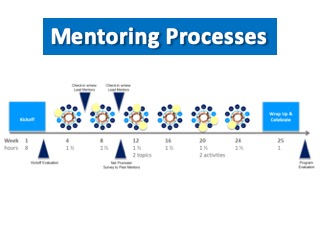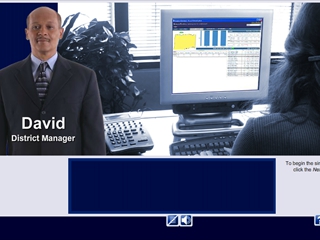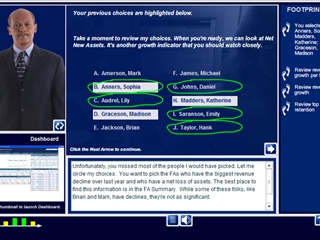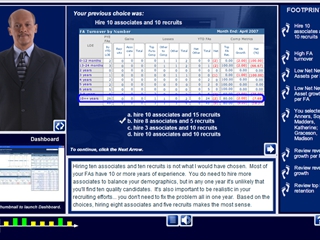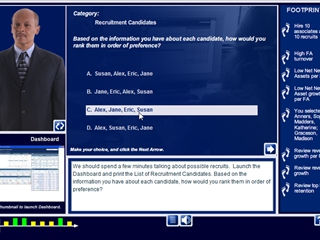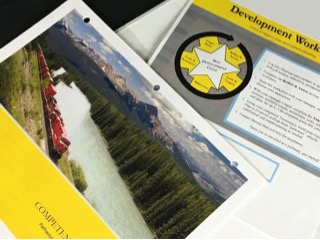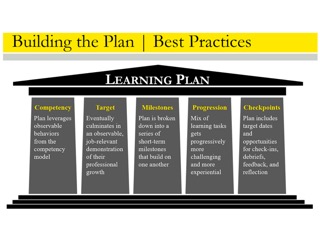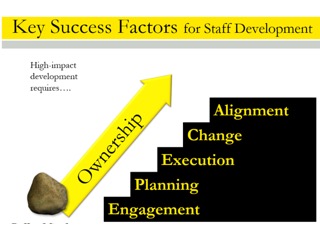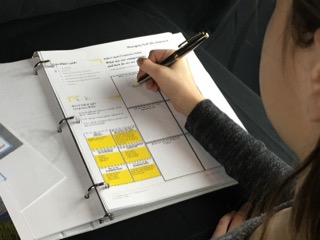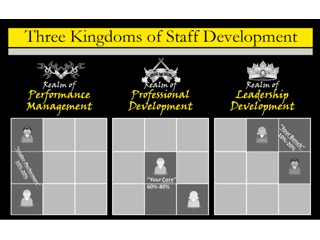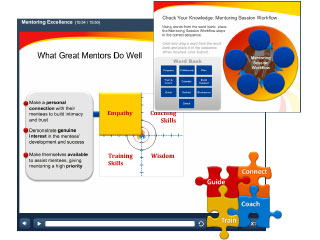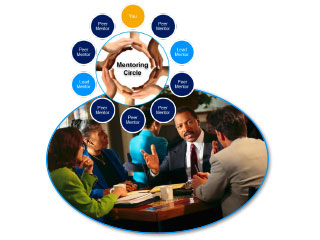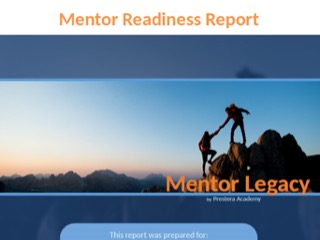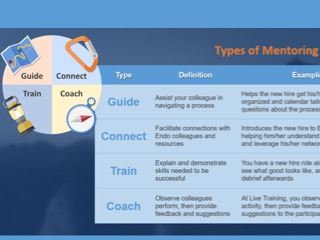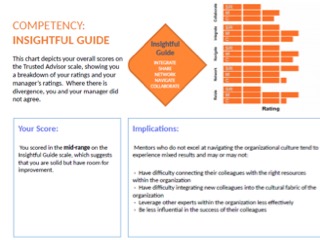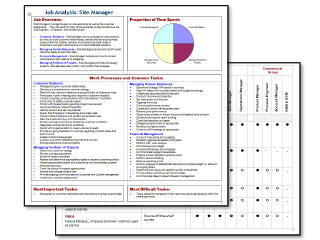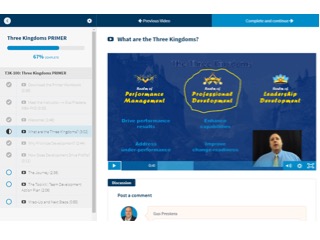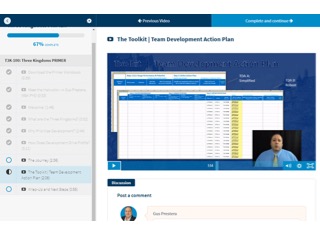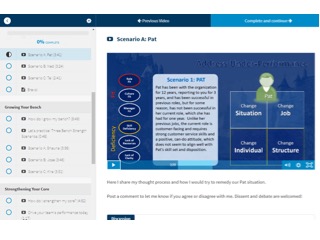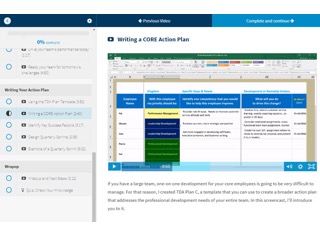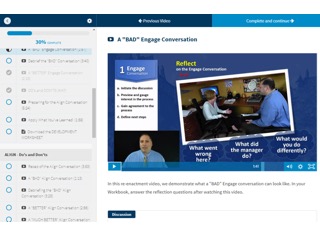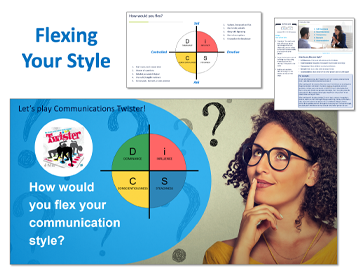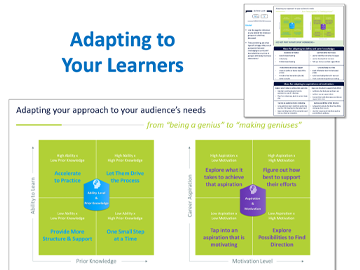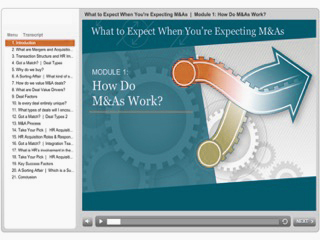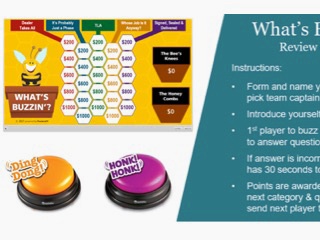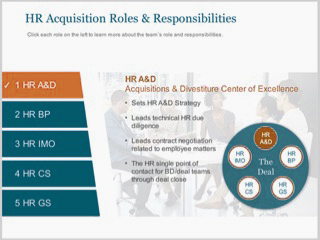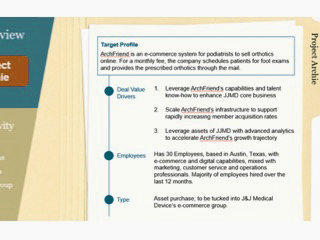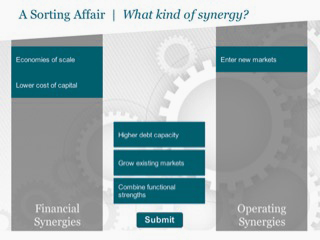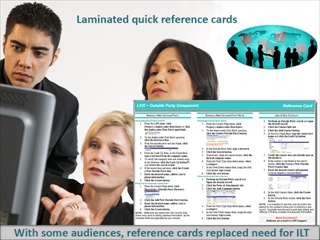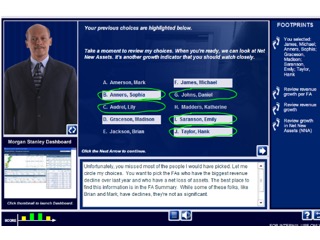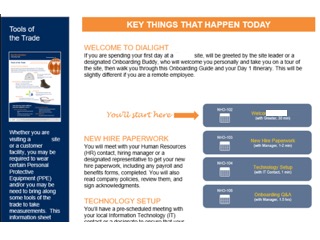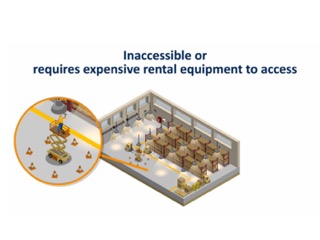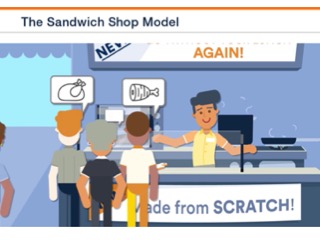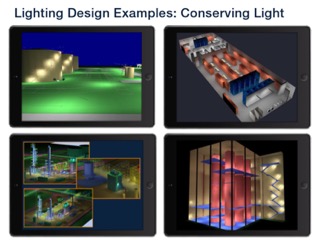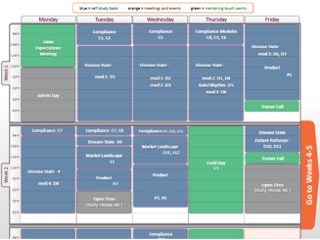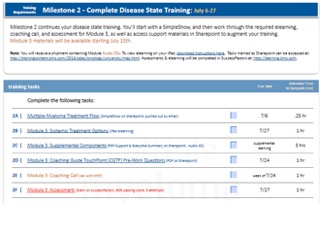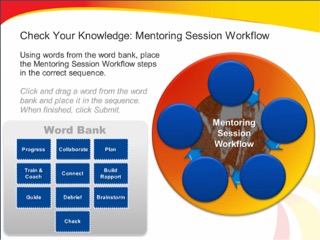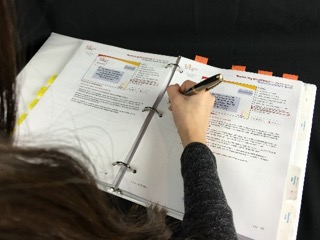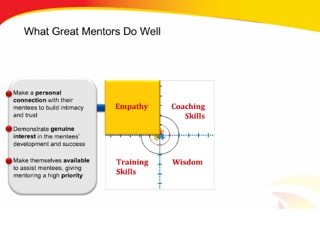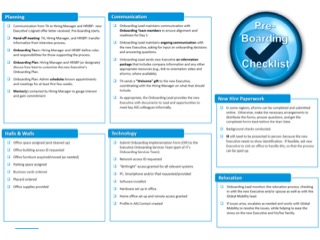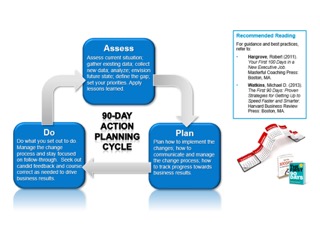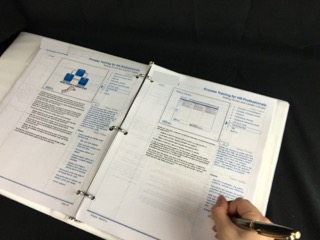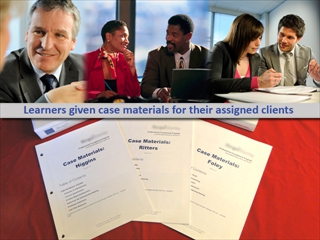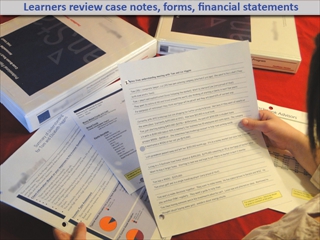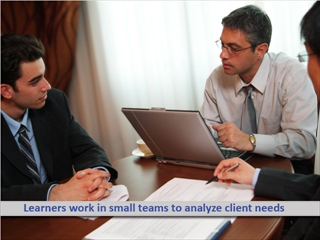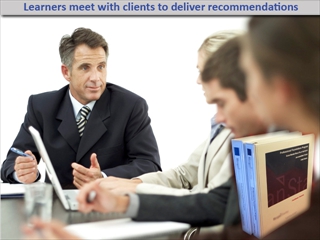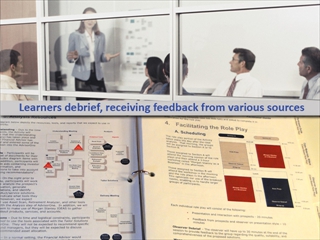Organizational Change
Driving Culturally Sensitive Change
As companies increase focus on diversity and inclusion, HR professionals have faced a challenge: how do you foster open dialog about potentially sensitive topics? We partnered with a client in the medical field – where collaborative stakes are especially high – to do just that. We started with a series of 8 e-learning modules, creating a shared pool of understanding, outlining best practices & tools, and leveraging leader videos to connect these concepts to the company culture. Then we created a workshop that leveraged scenario-based activities to practice conversations, applying approaches introduced in the e-learning, and articulating the words needed to navigate their roles. Workshops were intentionally small, pairing 20-25 employees with senior leaders who were trained and certified to moderate these sensitive conversations.
Organizational Change Communication
After assessing employee engagement and identifying the need for consistent application of their core values, we worked with this client to develop materials and support a multi-year campaign of organizational change. Knowing that communication is what drives momentum in a change initiative, we worked hand-in-hand to formulate value-based quarterly communication plans, develop materials to support live and virtual Speaker Series events, create a signage campaign to ensure events were seen across all available comms channels, translating of all materials into French, and providing ad-hoc comms support like creating puzzle giveaways of values posters for employee recognition gifts. After a year, the organization tripled the number of people enrolled in development programs and the organization was a finalist for LTEN’s Learning for Change award.
Organizational Assessment
Engagement Survey
Values-Driven Cultural Change
Team Facilitation
Helping HR Drive Change
Communication & Pull-Through
Leadership Development
Management Assessment Center
Developing Healthcare Leaders
Leadership Assessment
Executive Coaching
Mentoring High Potentials
Leadership Sims with Impact
Career Development
Learning to Self Develop
Peer Mentoring for Field Trainers
Mentoring Circles
Developing Field Trainers
Skills Mapping
Developing Your Team
Performance Improvement
Performance Appraisal Process
Coaching Simulation on a Budget
Skills-Based Hiring
Skills-Based Field Ride Assessment
Coaching Pull-Through
Coach Training for Managers
Training & Certification
Skills-Driven Hiring & Development Training
We designed and built a Career Development Toolkit: interactive PDF’s that guided and supported this sales team in their pursuit to promote, retain, and develop their workforce, as well as assessing and selecting top candidates for hire. After developing skills guides and career ladders across 4 roles, we conducted a workshop with re-enforcement games to help the organization become fluent with the skills frameworks. Once we had defined “what good looked like,” we developed skills-based interview guides, a Manager’s Guide to Interviewing, and conducted a workshop to introduce Directors to these new tools.
Mentoring for Peer Coaches
This program leverages our Mentoring skills framework to teach peer coaches, like sales field trainers, how to be more effective in supporting their team. My Mentor Legacy is a 2-hour vILT program that introduces the skills framework, best practices, and how to self-assess using our interactive PDF. We’ve also created 360 surveys to gather and assess team feedback on an individual’s strengths and and areas of growth with mentoring skills.
Monthly Webinars for Field Trainers
Empowering Learning Ambassadors
Flipped, Blended Learning & Certification
Presentation and Persuasion Skills with Practice
Consultative Selling Skills with Practice
Troubleshooting and Customer Service
We designed and developed a blended curriculum (ILT, e-learning, coaching) that was organized around ability level. With new hires, we focused on basic troubleshooting processes and tools. As they certified at each level and advanced, the training focused less on the technical troubleshooting aspects of the job and more on the inter-personal customer service skills, such as handling an irate customer. The highest level help desk personnel are taught how to mentor and coach the more junior personnel.
Systems Training for Key Business Process
When an organization builds or installs an enterprise system to support its key business process, the training cannot just focus on the keystrokes and mouse clicks. In this series of systems training courses, we articulated the business process and helped learners understand how the system fits into that process as well as how their role in the process drives business success downstream. Because there are several audiences, with different levels and types of involvement with the process and system, we built several variations of the training to suit each audience’s needs. With one audience, in fact, we scaled back the training to reference cards only, because of how they typically interact with the system.
Skills Framework Training
It’s not enough to build a skills framework. In order for it to have an impact on the organization, people need to understand what good looks like in the context of their day-to-day jobs. To help a global manufacturer gain adoption of their skills framework, we developed a series of video-based elearning modules. Each module contained videos explaining a skill in detail, discussing each success factor and describing what good looks like in the context of different day-to-day work situations. The modules also included video interviews conducted with senior leaders, where they explained what those success factors meant to them and provided real-world examples to demonstrate them.



